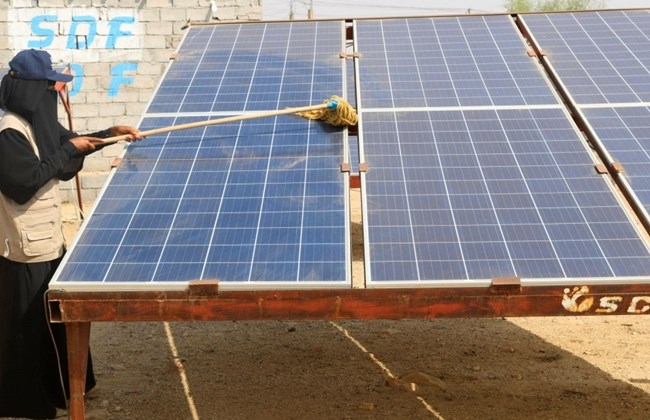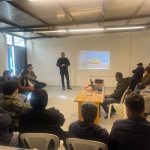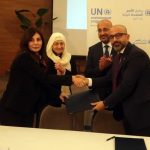

UNDP’s ‘The Next Frontier’: Rethinking Development
For a decade or so, the global financial crisis, the climate crisis, the injustice crisis, and the COVID-19 crisis have all demonstrated that the system’s stability and resilience are failing. This appears to restrict the future prospects to continuous disaster response rather than human development. Business as usual in education, economics, agriculture, industry, and health care among other fields would simply not suffice. The same may be said about the concepts of human development, which must be updated on a regular basis to meet the demands of our days. The UNDP’s human development report, “The next frontier – Human development and the Anthropocene,” was released internationally end of 2020 calling for a “great transformation that is needed to reset our societies and build back better. It emphasizes a great shift in how people live, work, and collaborate favoring development interventions that are with nature not against it and putting “people and the planet on a safe equitable and sustainable pathway.” The report was released on Tuesday, April 20 in Lebanon, aiming at sparking a discussion on how to react to the challenges of the new normal and how to maintain human progress while alleviating planetary pressure. The stress on the world have increased dramatically over the last 100 years. People have been pushing the planet to its breaking point characterized by climate change, shattered inequality, and an unprecedented number of citizens displaced by war and crises. The reports adopt what scientists believe to be the beginning of a new “geological epoch” for the planet. This age is outlined by the report as the human age or the Anthropocene, characterized by the influence of human decision that forms the primary threat to our existence. The report stresses that peoples’ and the planet’s interconnected fates should be taken into consideration. The 2020 UNDP Human Development Report is the 30-year anniversary edition. Few individuals had learned about climate change since the launch of the first Human Development Report in 1990 that questioned the centrality of economic growth as an indicator of success. Back then, the report provided a forward-looking solution to GDP by rating all countries according to whether people had the “freedom and opportunity to live a life they valued.” In doing so, the report inspires a new debate about what it is to have a “good life.” Human development is described in the report as “a continuing quest, not a destination,” with the core goal of empowering people to find and follow their own pathways to a better life rooted in expanding freedoms. This year’s report focuses on handling individuals as “agents rather than patients.”
Navigating Complex Futures
“The Next Frontier: Human Development and the Anthropocene” report presents the recent Planetary-adjusted Human Development Index providing and highlighting a fresh set of metrics and dashboards. The report initiates a fresh dialogue along a new direction that implies that the path forward from COVID-19 would be a “generational journey.”
According to the report, “warning lights — for our societies and the planet — are flashing red.” One of the distinguishing characteristics of today’s world is the constant cycle of crises which poses a problem on how to cope with these current difficulties and whether to opt for brave new directions that broaden human freedoms and relieve environmental stresses in the face of “uncertain” futures.
The report challenges the story around “solutions to a problem.” It claims that the image is fluid, nonlinear, and dynamic. As a result, the unintended effects of even the most seemingly successful solution can be serious. The report proposes to reorienting the current approach that is focused on addressing single or specific issues to situations to deal with multidimensional and intertwined ones.
Human development may have suffered a substantial loss in 2020. The report argues that in the face of uncertainty, change must embrace an adaptive learning-by-doing method, deep-seated in a cooperative decision-making process; it argues that it is time for a “transformation.”
Human growth is about increasing people’s freedoms and giving them more options for charting their own development pathways in accordance to what they value. The report raises the issue that human decisions are influenced by values and institutions. The interconnection between these two factors has fostered the existing environmental and social imbalance.
According to the 2019 Human Development Report, a new wave of improved skills is becoming increasingly necessary for individuals to succeed in the modern world. The fundamental concepts governing human existence have been constant, yet the background has shifted.
In addition to increasing people’s capacity to live the lifestyles they value and widening people’s opportunities, the report takes into consideration two other essential aspects of human development: participation in decision-making and the stewardship of the earth.
It encourages societies to cultivate skills, agency, and values focusing on how norms, principles and regulation can expand human liberties, incentives and enhance opportunities.
The report focuses on action processes rather than on individual actors, highlighting an all-of-society approach to human development. Not only it denotes that “complexity” necessitates the use of more lenses and the adoption of new metrics but also it suggests applying complexity thinking emphasizing the importance of constructive feedback loops in accelerating transformation and stabilization of the new normative state.
Today, counties around the globe are in the middle of responding and recovering from the COVID-19 pandemic. To build back better, the report is a good resource that provides recovery planning policies and guidelines that drive transformational change toward more sustainable and resilient societies.


Free Vocational Training Courses For Youth Copy

Free Vocational Training Courses For Youth

Mrs. Bahia Hariri Participated In The Seminar “Greening Education In Lebanon”

MoU Between Hariri Foundation And UNEP… In Saida Environmental Forum
